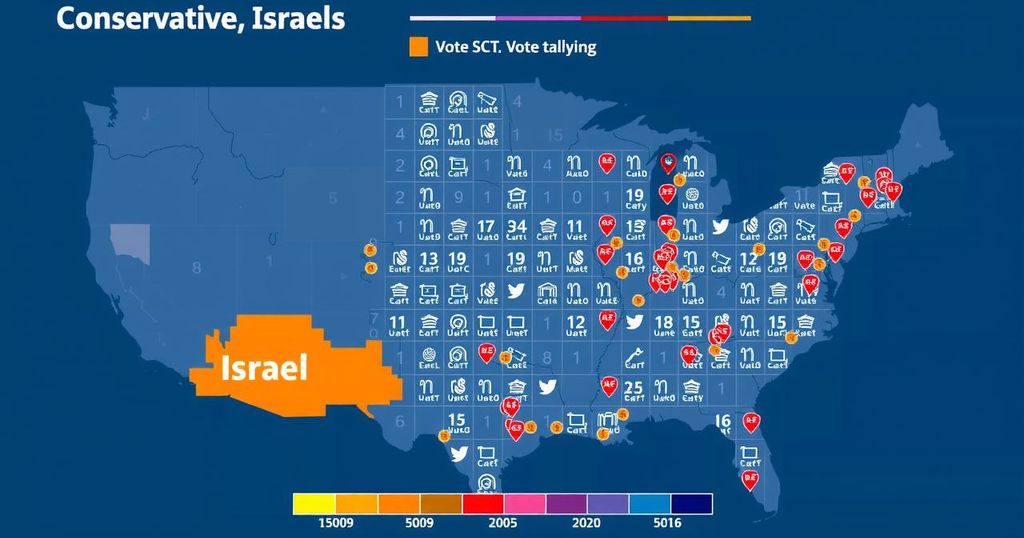As the 2024 U.S. election approaches, Donald Trump and Republican leaders are actively seeking support from conservative Christians by emphasizing pro-life, pro-family, and pro-Israel values. However, dissent has emerged among some conservative Christians over the Republican party’s unconditional support for Israel amidst Middle Eastern conflicts, raising questions about the alignment of Christian values with political commitments. Polls indicate a divided landscape, where traditional support for Israel is increasingly scrutinized by younger and more compassionate conservative Christian voters.
In the lead-up to the United States general election, efforts to galvanize support from conservative Christians have intensified, with former President Donald Trump and Republican allies actively campaigning in key battleground states like Georgia. At events such as “Believers for Trump” and “Believers and Ballots” rallies, Republican leaders have sought to mitigate concerns over Trump’s past behavior and reinforce the party’s commitment to pro-life, pro-family, and pro-Israel values. Michael Whatley, chair of the Republican National Committee, emphasized these priorities during a rally at a church in Austell, Georgia, where a significant number of conservative Christians reside. Despite this, some conservative Christians attending the rally expressed their objections to the party’s unwavering support for Israel amid ongoing conflict in the Middle East. Figures like Cindye Coates, a conservative pastor, articulated a desire for a more humanitarian approach, suggesting that the Republican party’s alignment with unconditional support for Israel diverges from an “America First” philosophy. Many in this community are beginning to question the moral implications of political aid to Israel while domestic issues such as disaster recovery in the U.S. remain unaddressed. Polling indicates that Trump’s backing remains strong among white evangelical voters, who account for a significant demographic in Georgia. Yet, the complexities regarding support for Israel reflect a nuanced shift, as some younger Republican voters show ambivalence toward continued military aid to Israel. Notably, Polls specify that as many as 33 percent of White evangelicals support placing restrictions on U.S. aid to Israel, indicating a disparity between traditional support and evolving perspectives within the party. In the context of upcoming elections, prominent figures within the Republican party, such as Ralph Reed, president of the Faith and Freedom Coalition, continue to advocate for robust support of Israel while portraying Democrats as having abandoned this commitment. However, dissenting views reveal a divide within evangelical circles regarding the conflation of faith and political allegiance to Israel. Consequently, while Trump’s rhetoric touts his achievements in relations with Israel, the party must navigate the growing complexities and potential discontent among its conservative Christian electorate.
The article examines the relationship between conservative Christians and the Republican party as the United States approaches a pivotal election. It highlights the active campaigning efforts of Donald Trump and Republican leaders to shore up support from this demographic. Given the importance of conservative Christians in swing states, the article also addresses the controversy surrounding U.S. foreign aid to Israel, particularly amidst current Middle Eastern conflicts. The historical context of evangelical support for Israel is discussed, linking theological beliefs to political endorsements, and notes the changing attitudes among some voters who are increasingly questioning the party’s stance on unconditional support for Israel.
Overall, the article illustrates the complex dynamics between conservative Christian values and Republican policies, particularly regarding foreign relations and support for Israel. It reveals a potential shift in sentiment among evangelical voters, especially younger ones, who may prioritize issues at home over international allegiances. As the election approaches, how the Republican party addresses these discordant views could significantly influence its electoral success, especially in critical states like Georgia.
Original Source: www.aljazeera.com






